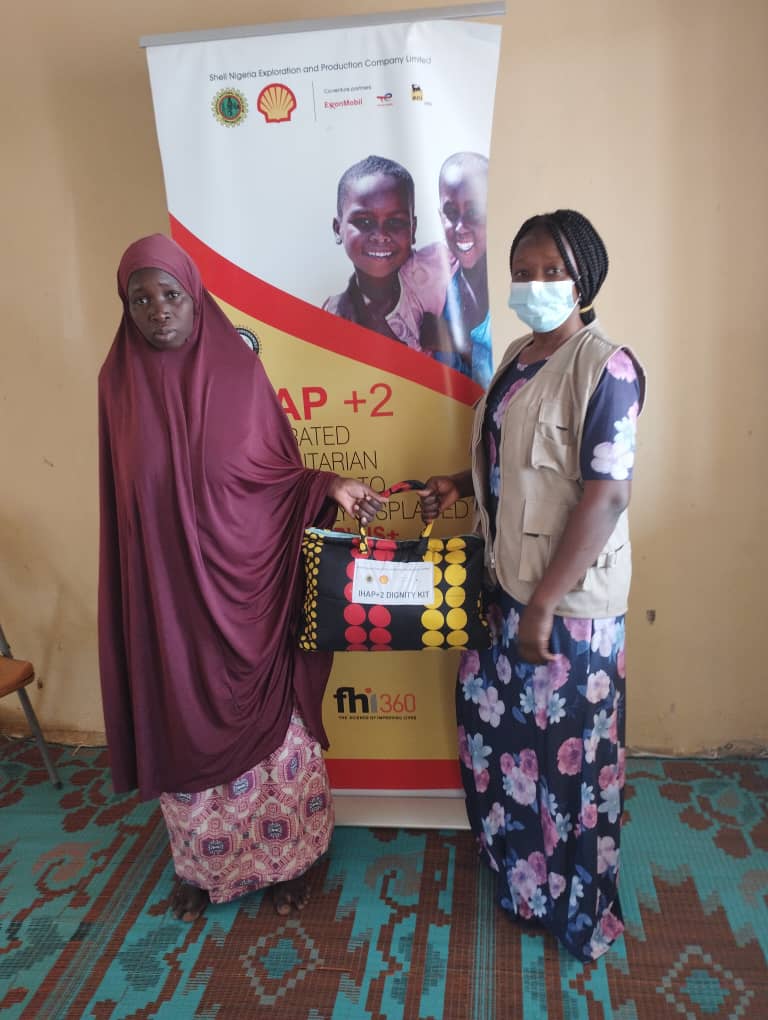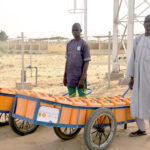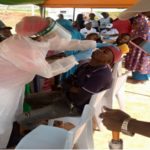Human-Centered Integrated Health Services
AN IHAP+ 2 SUCCESS STORY
The continuous impact of the Northeast humanitarian crisis and the destruction of essential services and infrastructures increase conflict-affected populations’ vulnerabilities, especially in Borno state. More internally displaced persons (IDPs) face heightened hardship and inability to meet their health and other basic needs. Especially women and children, who constitute 80% of the displaced population in the state. The IDPs living in the Indimi Housing Estate, Bama, a settlement for IDPs, depend on government and humanitarian aid for survival.
In 2022, three IDPs, Fatima Mustapha, Yagana Bukar, and Falmata Mustapha, visited the SNEPCo. ‘s funded integrated humanitarian to internally displaced persons project plus 2 (IHAP+2) ‘s facility with health and protection challenges.

A service that would have been difficult to access as the nearest government health facility was 2km away, and IDPs would have to transport themselves and pay for medical services, which they could not afford.
Fatima Mustapha brought her two-month-old child, who had been sick, to the SNEPCo’s IHAP+2 Indimi Housing Estate, PHC, following a reference from a community volunteer during integrated community case management (ICCM) outreach. Before that, Fatima had resorted to using herbs to treat her child until comm.
The health team found the child dehydrated from frequent loose stool and vomiting. The team provided medical treatment and followed up on the case until the child recovered. They taught Fatima how to prepare a locally made salt-sugar solution, commonly called the ORS, efficiently preventing dehydration in sick children.
“I am happy that my child is well again and we did not spend any money. Thank you for the support.” – Fatima Mustapha
Twenty-year-old pregnant Yagana Bukar visited the SNEPCo.’s IHAP+2 supported PHC for antenatal care (ANC) services barefooted. The health team noticed and probed further to know her concerns. She showed signs of emotional stress, and the health team referred her to the protection team for support.
In the protection section of the PHC, the team provided psychosocial support and counselling to Yagana. She received a dignity kit consisting of wrappers, shoes, toiletries, and other items to address some of her immediate needs.
Yagana expressed delight over the gifts. She said, “Life has not been easy since my husband travelled and left me alone to fend for myself. I do not have decent clothing or shoes to wear. I feel ashamed when I interact with my peers, and I prefer to stay indoors all day. I had lost hope and was barely surviving. I came to this clinic because I was sick. I never thought I would get this kind of care. This support is a life changer for me. It has restored my dignity among my peers. Now, I feel confident going out, and Life has been reignited in me. Thank you for bringing hope to my life.” Yagana Bukar lives alone in the Indimi Housing Estate Camp and can barely afford her basic needs. Her husband left for the city in search of better opportunities. and face emerging challenges with dignity and strength.
Falmata Mustapha visited the SNEPCo.’s IHAP+2 supported PHC for antenatal care with her sixth pregnancy. She had only one surviving child after four of her children died in infancy. Her family and relatives attributed it to “evil spirits”. After the ANC session, the midwife referred her to the nutrition team for infant and young child feeding (IYCF) counseling available for pregnant and lactating mothers.

The Nutrition team, from evaluation and discussion, confirmed that Falmata’s nutritional practices were poor. She was counselled and enrolled in the mother-to-mother support group with other women of different age categories to learn about healthy practices and influence other women in society.
“When a child is born, we feed the child with goat milk for the first two weeks until the religious leader prays on the breast before we can commence breastfeeding. After that, we introduce pap and other foods. At times we force-feed the baby if the child does not take the food. I was erroneously denying my children their vital nutrient – breast milk. That could be the reason I lost four of my children in infancy. Now I am better informed. I put my baby on breastmilk immediately after delivery and feed him only breastmilk. I practice good hygiene, encouraging my friends and family to do THE same. I am now a strong advocate of exclusive breastfeeding and personal hygiene. All thanks to you and your sponsors.” – Falmata Mustapha
Since joining the IHAP+2 support group in February 2022, Falmata has learned to correct some common practices and myths. And successfully delivered her baby and then introduced him to exclusive breastfeeding as advised. He is now two months old and is doing well.
The SNEPCo. ‘s funded IHAP+2 project is a multi-sectoral intervention integrated with nutrition and protection in health services. IHAP+2 targets 20,000 IDPS with essential services to cope with the impact of the conflict and build resilience.



